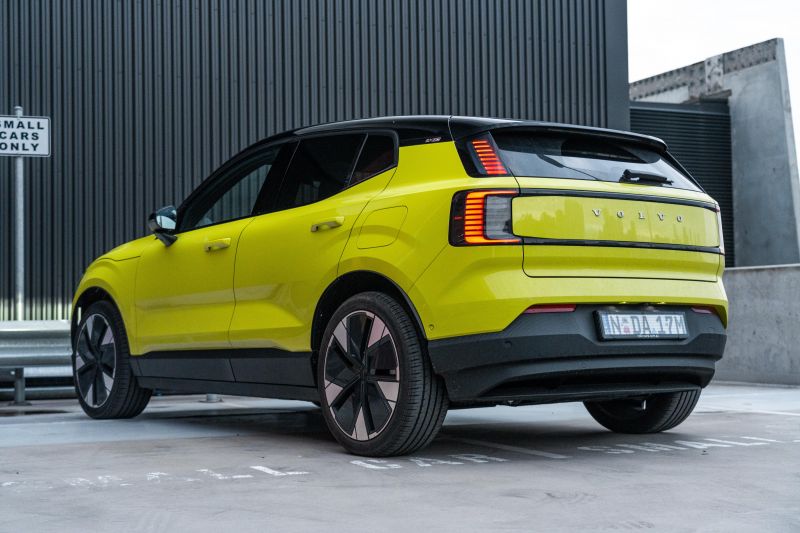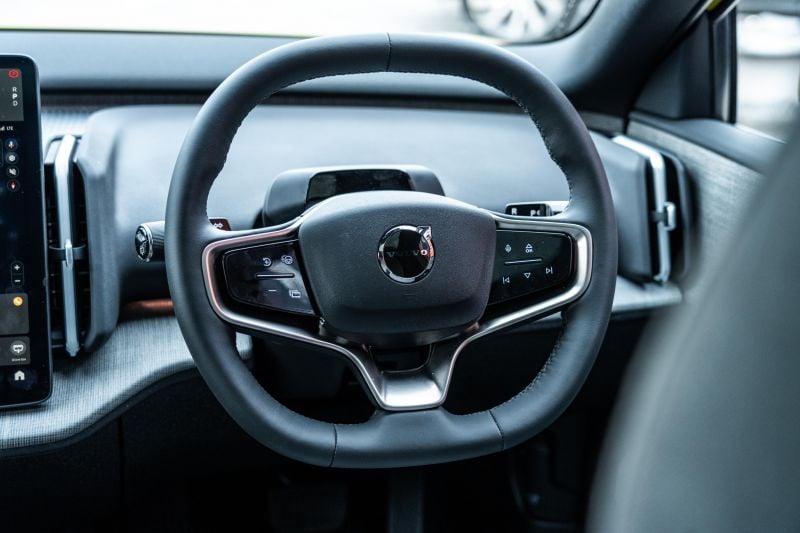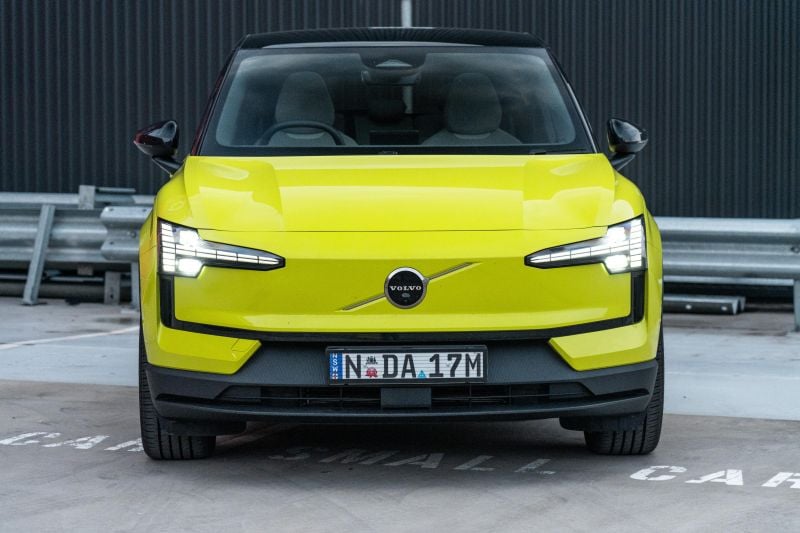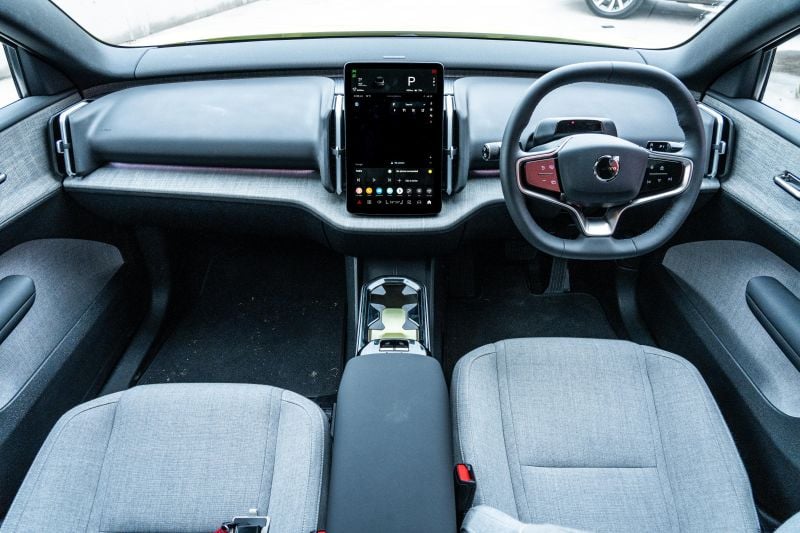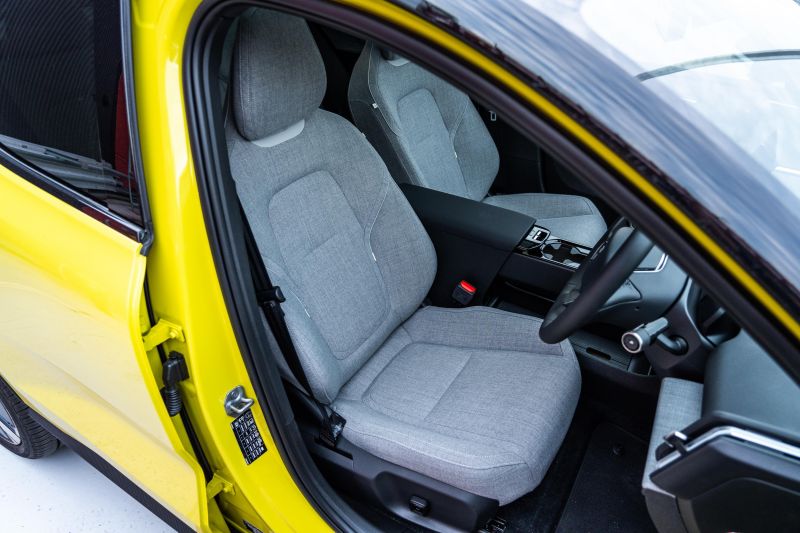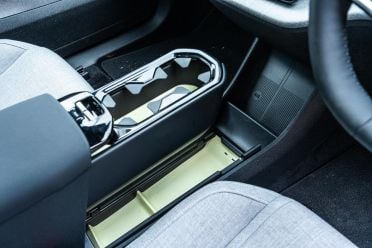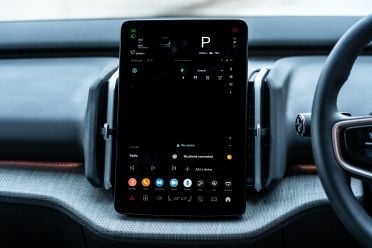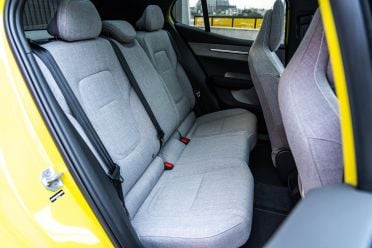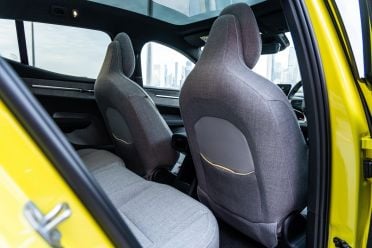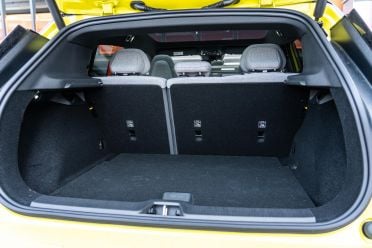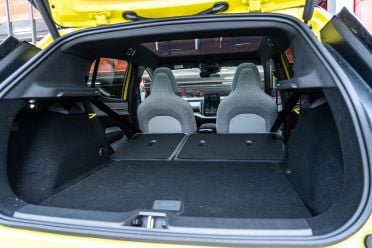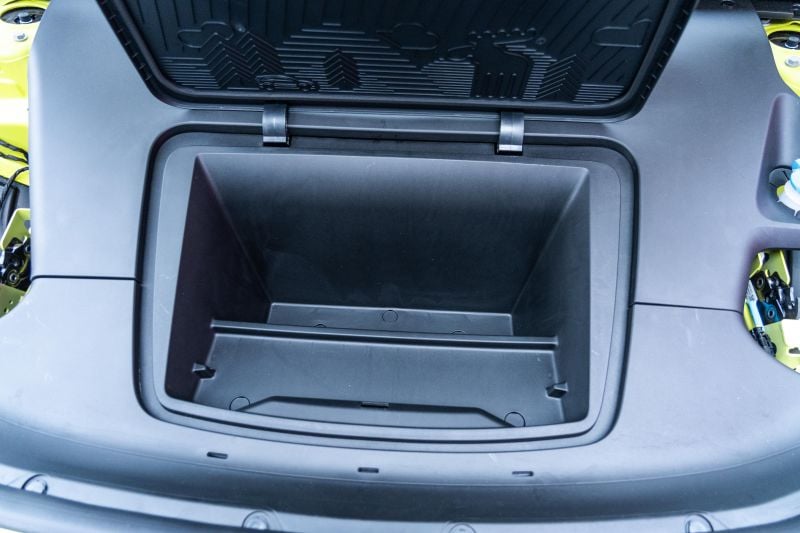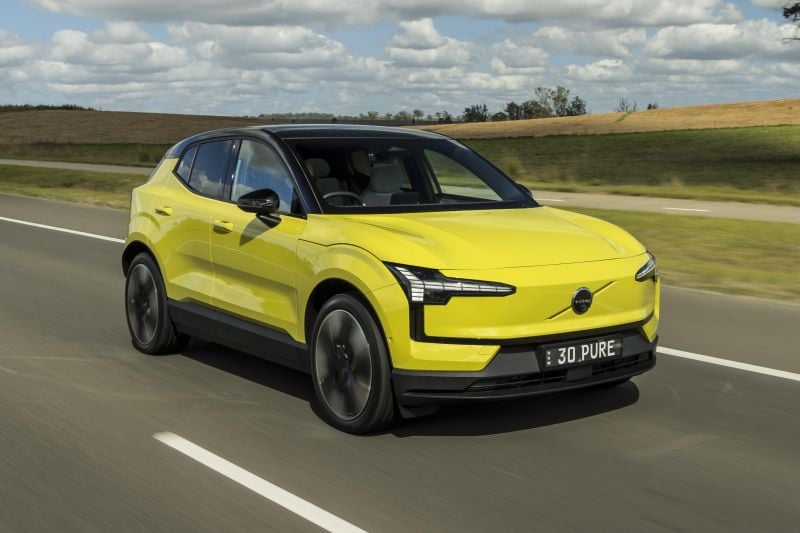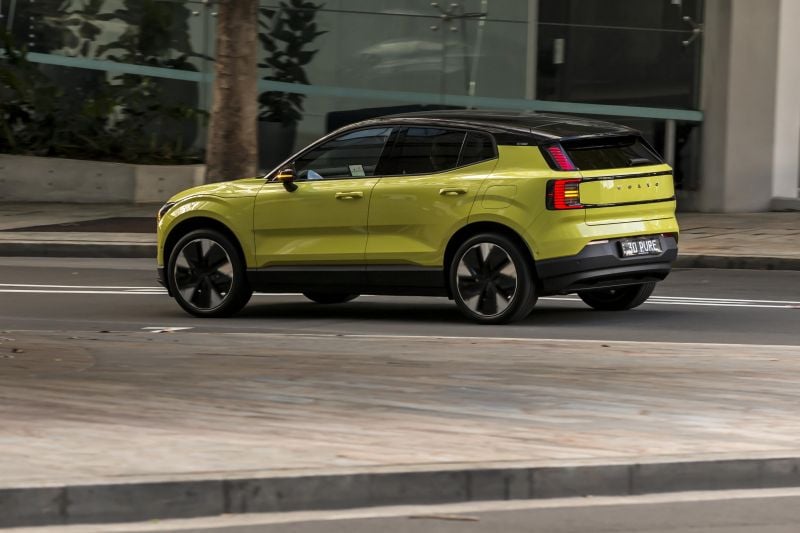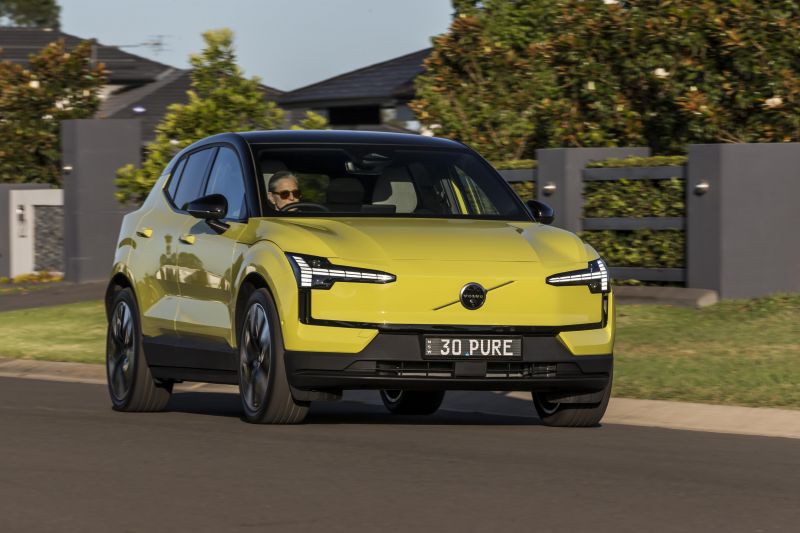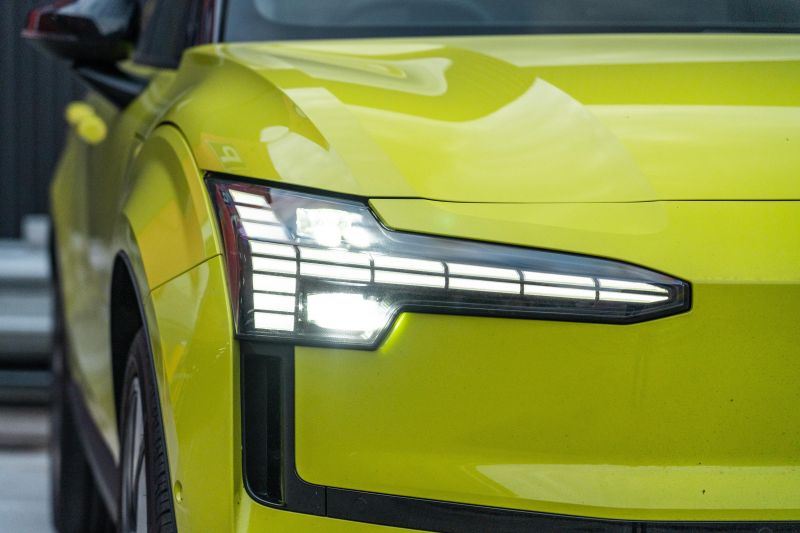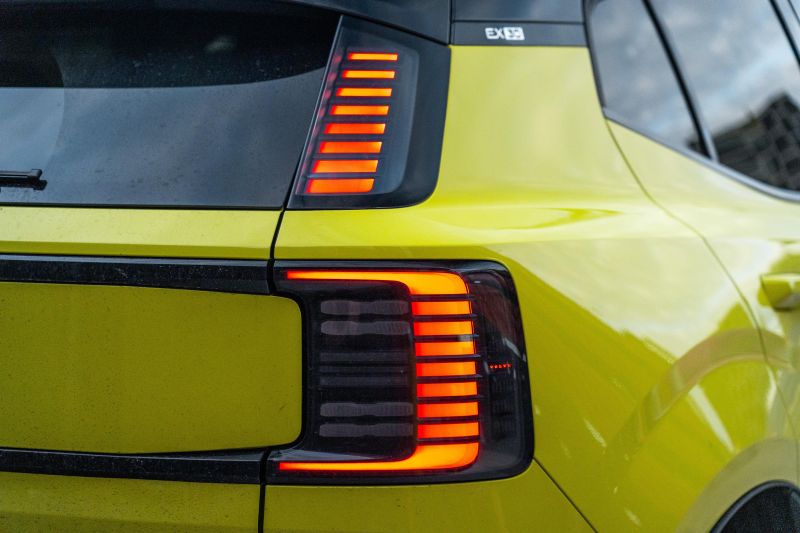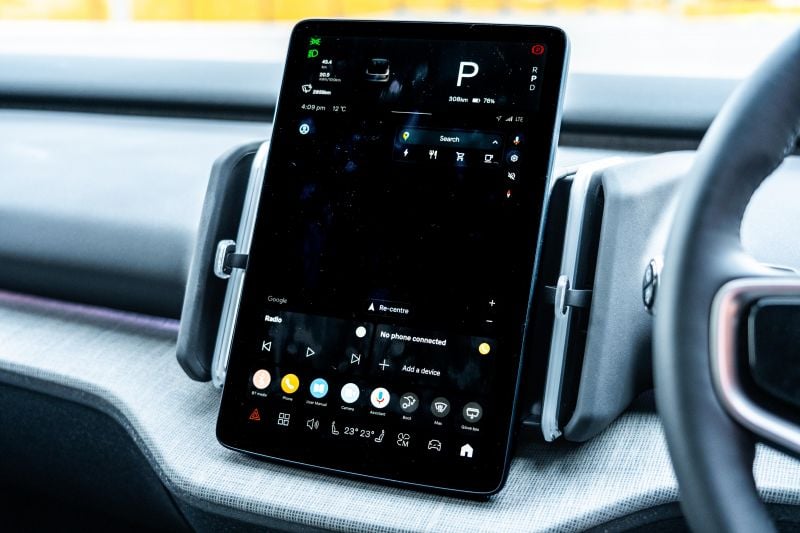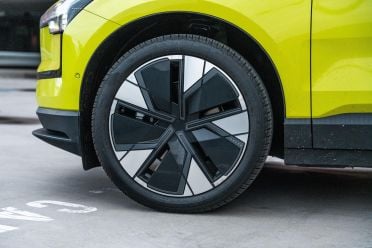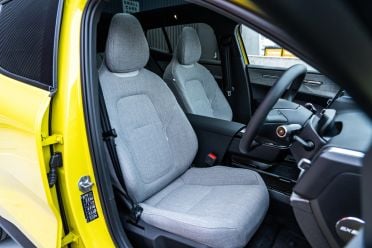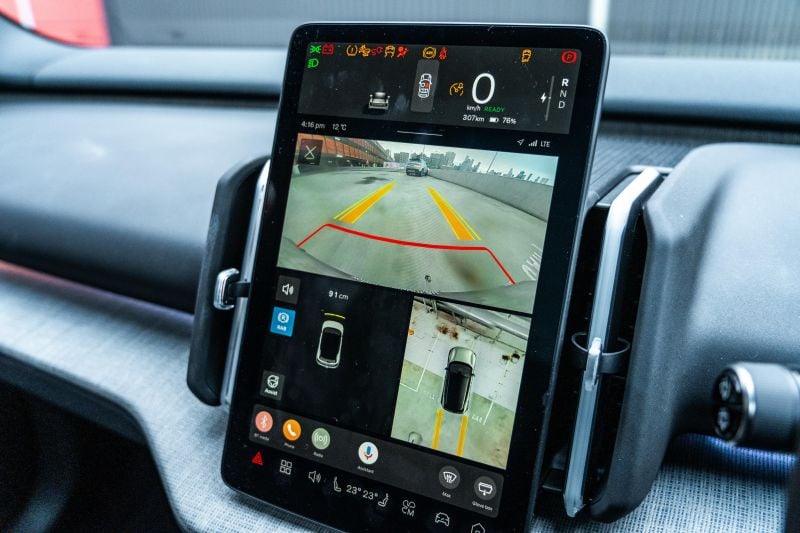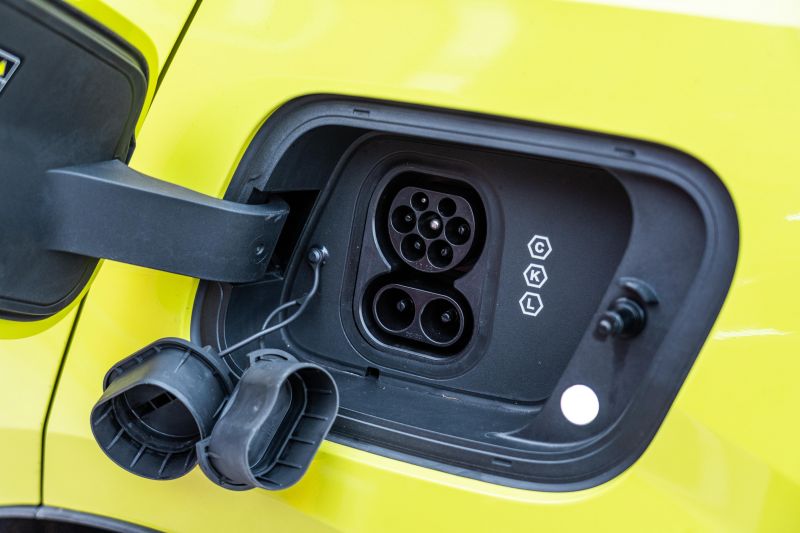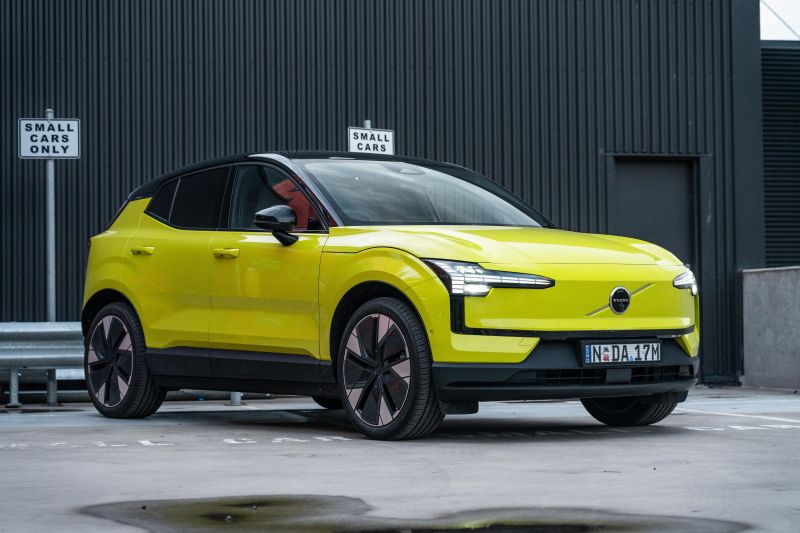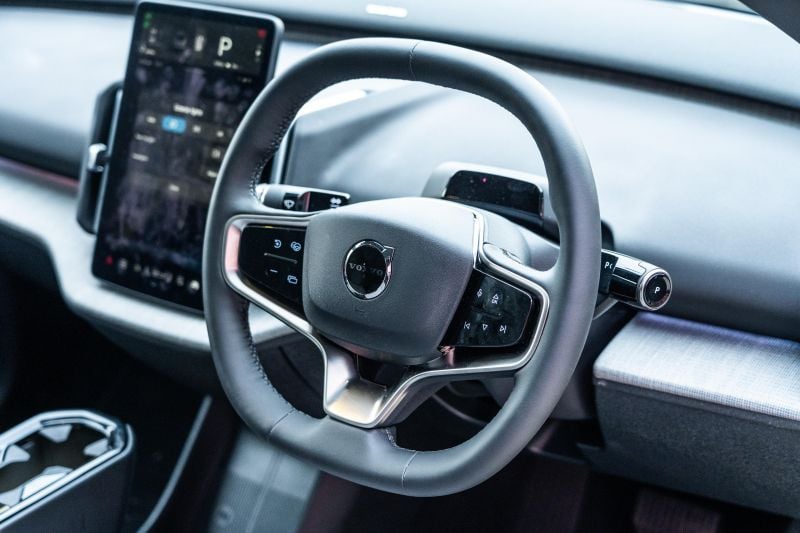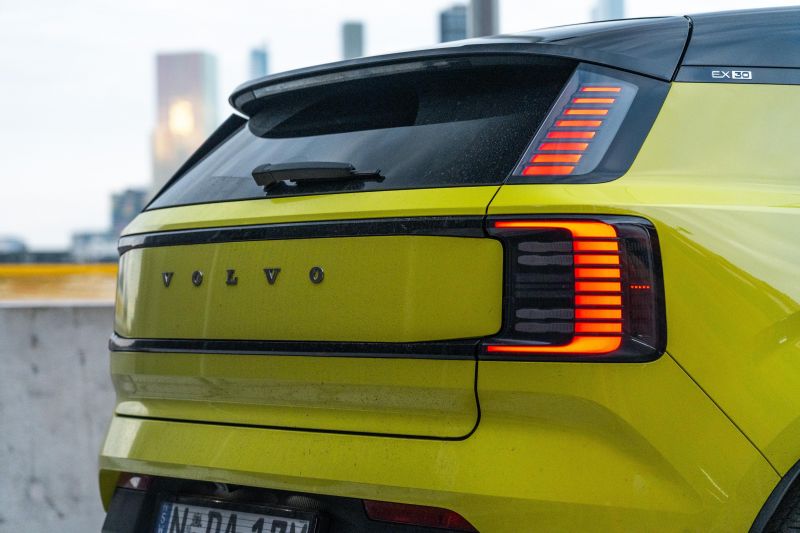Volvo has taken its next step towards its eventual goal of being an electric-only brand.
It already offers the XC40 and C40 Recharge Pure Electric models in Australia, but they’re both based on a platform that also supports petrol and diesel power. The new Volvo EX30 is a different beast entirely.
Under the skin, it rides on what parent company Geely calls the SEA architecture. Along with the EX30, it forms the basis of the Zeekr X and the Smart #1 – both of which are small electric SUVs in the same vein as the Volvo.
This is a bespoke platform, and the ethos here is representative of where Volvo wants to take its next generation of products.
Enough about the future though, in the here and now the EX30 has a tough job ahead of it. The EV space is getting crowded in Australia, and the little Volvo is priced in line with the big-selling Tesla Model Y.
Does it have what it takes to stand out from the crowd?

How much does the Volvo EX30 cost?
The EX30 has already been hit with a price hike relative to its launch sticker. The EX30 Single Motor Extended Ultra on test here was $64,990 before on-roads at launch, but any new 2025 orders is $1300 more expensive.
| Model | Price before on-road costs |
|---|---|
| 2025 Volvo EX30 Single Motor Extended Plus | $59,990 |
| 2025 Volvo EX30 Single Motor Extended Ultra | $66,290 (+$1300) |
| 2025 Volvo EX30 Twin Performance Ultra | $71,290 (+$1300) |
To see how the Volvo EX30 lines up against the competition, check out our comparison tool.
What is the Volvo EX30 like on the inside?
Wow. Although cues like the portrait touchscreen and vertical air vents mark this as a Volvo, the EX30 feels like a clean sheet design. It’s a really handsome little thing inside, and is chock full of interesting materials.
The fundamentals are good. Volvo has always done excellent seats; although they don’t have quite the same range of adjustment as those in the XC40, the wool-trimmed seats in the EX30 are still brilliant.
Coupled with a funky, squared-off steering wheel that feels good in your hands, this is a little car that feels accomodating for bigger drivers. Most of what you touch is high quality, too.
The seat trim is warm and welcoming, while the metal door handles are cold to the touch.
Even the recycled dash materials are interesting, rather than feeling harsh and cheap. With that said, the indicator stalks and steering wheel buttons feel quite flimsy, and things like the open central bin (instead of a slot under the lift-up armrest) speak to the fact way Volvo has worked to cut costs.
Likewise the central glovebox, and window switches which need to be toggled from the front windows to the rears.
Volvo has followed Tesla down a single-screen path. All the major controls are housed there, right down to the mirror adjusters, and there’s no instrument cluster or head-up display.
The positives? The speed readout is big and easy to make out at a glance, most of what you want to do is within one or two button presses, and all the responses will make anyone who’s used an iPad immediately feel at home.
Given it’s built using Android as a base, Google is baked right into everything the EX30 does. Google Assistant is your voice assistant behind the wheel, the mapping is supplied by Google, and you’re able to download apps from the Play Store for native podcasts, music, and EV route planning.
Apple CarPlay wasn’t available on our tester, but it is reportedly coming with a software update.
Unfortunately, it’s too hard to turn off key functions like the too-keen driver monitoring system.
There’s also some awkward lag in the Bluetooth system that meant my iPhone wouldn’t connect until the car had been moving for a while – and at times it was reticent to start my music.
These are all things that can be ironed out with software updates, and they’re the sort of bugs that are common in modern cars built on new tech architectures. But they’re also the sort of things that would really annoy anyone who has spent more than $60k on what’s meant to be a cutting-edge new product.
Rear seat space is impressive given the diminutive exterior… but poor alongside similarly priced rivals like the Kia Niro, let alone the Hyundai Ioniq 5.
It’s a space best kept for kids or smaller adults, with limited legroom and middling headroom for full-sized adults. There are no air vents, but you do get USB-C ports to keep kids’ devices charged on long drives.
Notable by its absence is a fold-down central armrest, in another cost-cutting move.
The rear backrests fold 60/40, making it easier to load long items. The space itself is again pretty impressive given the size of the body, but it’s small when you consider what’s on offer in similarly priced electric (and petrol, hybrid, diesel) SUVs.
| Dimensions | Volvo EX30 |
|---|---|
| Length | 4233mm |
| Width | 1837mm |
| Height | 1555mm |
| Wheelbase | 2650mm |
| Boot capacity | 318-904L (+7L front boot) |
To see how the Volvo EX30 lines up against the competition, check out our comparison tool.
What’s under the bonnet?
This is the EX30 variant with the longest range, although the Twin Performance Ultra is faster in a straight line.
| Model | Volvo EX30 Single Motor |
|---|---|
| Electric motors | Single motor, electric |
| Total system power | 200kW |
| Total system torque | 343Nm |
| Driven wheels | Rear-wheel drive |
| Battery | 69kWh nickel manganese cobalt |
| Weight | 1810kg |
| 0-100km/h (claimed) | 5.3 seconds |
| Top speed | 180km/h |
| Claimed range | 462km (WLTP) |
| Energy consumption (claimed) | 17.5kWh/100km |
| Maximum AC charging rate | 11kW |
| Maximum DC charging rate | 153kW |
| Charging time (10-80 per cent) | 30 minutes |
To see how the Volvo EX30 lines up against the competition, check out our comparison tool.
How does the Volvo EX30 drive?
Some electric cars feels heavy and cumbersome because of the chunky battery under the floor.
At 1800kg the EX30 isn’t a featherweight, but it feels light on its feet like the best city cars. Even in single-motor guise it has more performance than most owners will ever need, with a hot-hatch-troubling 100km/h sprint time making it a champion in the traffic light grand prix.
You sit higher than regular hatches and sedans – albeit only by a bit – in the city, and it’s easy to spot the car’s corners in tight spaces.
Throw in light steering that rarely demands drivers take their hands off the wheel in town, and you’ve got a car that’s fun to point and shoot through the cut-and-thrust of town.
Volvo does have work to do on its regenerative braking. The EX30 doesn’t offer proper one-pedal driving, and what happens when you lift off the accelerator varies based on what’s happening with the car in front of you.
It doesn’t inspire confidence, and is worse than the setup in the existing XC40 and C40 EVs.
Ride quality is excellent in town. This is a little car riding on big wheels, but it does an excellent job keeping pimply streets from undermining the refinement inside, and smooths out sharper hits from potholes and speed bumps better than you’d expect.
It doesn’t fall to pieces at higher speeds, either. The punch from the electric motors doesn’t wane as you accelerate to 100km/h, and Volvo has done a great job keeping wind and road noise to a minimum at high speed.
This behaves like a bigger car on the open road, aided by the suite of driver assists.
The comfortable ride in the city does mean the EX30 occasionally takes more than one movement to settle over big crests or dips, but it’s still well controlled.
Volvo’s driver assists are a mixed bag, which isn’t something we’ve said about its older models.
The adaptive cruise control is predictably excellent, and the lane-keeping assist only intervenes when it’s required rather than trying to rip your the wheel out of your hands. The Pilot Assist system takes things a step further and takes a more active role in keeping you in the middle of the lane when cruise is active.
But the driver attention monitoring system is way too keen to make its presence known, and requires too many button presses to be turned off.
What do you get?
EX30 Plus highlights:
- 11kW on-board charger
- Home charging cable, 7m (10A)
- Air quality system
- Cabin filter
- Heat pump
- Dual-zone climate control
- Auto-dimming interior, exterior mirrors
- Door opening alert
- Driver alert system
- LED headlights
- Active high-beam
- One-pedal drive
- Rain-sensing wipers
- 19-inch 5-spoke aero wheels
- Roof top, mirror caps in Onyx Black
- Blue air vent decor
- Denim decor
- Interior illumination, high level
- Removable rear storage box
- Sliding cupholders, storage
- Sports steering wheel
- Textile, Nordico upholstery
- Textile interior cabin floor mats
- Power outlet, load compartment
- Power tailgate
- 12.3-inch centre touchscreen
- 5G capability
- DAB radio
- Front, rear USB charge ports
- Google Built-in – 5 years
- Google Assistant
- Google Maps
- Google Play Store
- Harman Kardon premium sound
- Over-the-air updates
- Volvo EX30 app
- Wireless phone charging
EX30 Ultra adds:
- Heated steering wheel
- Rear privacy glass
- 360-degree camera, 3D view
- Park Pilot Assist
- Panoramic roof
- Power front seat adjustment incl. 4-way power lumbar
- Heated front seats
Is the Volvo EX30 safe?
The EX30 hasn’t been crash tested by Euro NCAP yet.
Standard safety features include:
- Adaptive cruise control
- Blind-spot assist
- Collision avoidance mitigation
- Autonomous emergency braking
- Autonomous emergency steering
- Vehicle, cyclist, pedestrian detection
- Front cross-traffic alert
- Intelligent speed assist
- Intersection auto brake
- Straight crossing path
- Right, left turn
- Lane-keep assist
- Oncoming Lane Mitigation
- Oncoming mitigation by braking
- Parking sensors front, rear
- Pilot Assist
- Adaptive cruise
- Lane centring assist
- Rear collision warning and mitigation
- Rear cross-traffic assist
- Rear-view camera
- Road sign information
- Run-off Road Mitigation
The Ultra also receives rear low-speed auto braking.
How much does the Volvo EX30 cost to run?
The Volvo range in Australia is backed by a five-year, unlimited-kilometre warranty. The battery is also backed by an eight-year warranty, and owners are treated to eight years of roadside assist.
| Running costs | Volvo EX30 |
|---|---|
| Warranty | 5 years, unlimited kilometres (vehicle) 8 years (battery) |
| Roadside assistance | 8 years |
| Service intervals | 24 months or 30,000km |
| Capped-price servicing | 5 years or 150,000km |
| Total capped-price service cost | Included with purchase |
CarExpert’s Take on the Volvo EX30.
Rather than a new take on an old formula, Volvo has started fresh with its smallest car and delivered a really interesting little SUV. It’s not perfect, but there’s a lot of potential there.
The good? It’s genuinely really enjoyable to drive in the city, and the interior is endearing and interesting instead of cheap and nasty – despite cost-cutting ultimately being at the core of why so many of the decisions have been made here.
There’s also something to be said for the holistic thinking driving some of Volvo’s design here.
Recycled materials, lighter weight, and simpler manufacturing can’t fully offset the grubby parts of building an EV, but they lend more credibility to the idea the EX30 is a car designed to be better for the world than what came before.
As for the bad? It’s still expensive for a small car, and the touchscreen infotainment system needs refinement.
Volvo has worked so hard to build its brand into a safe, relaxing alternative to the German luxury establishment, and the combination of infuriating active safety features and an obstructive touchscreen doesn’t fit with that image.
There’s real appeal here, and it’s well worth heading out for a test drive. There’s potential for the EX30 to be even better though, and we’re looking forward to seeing how Volvo evolves it.
Click the images for the full gallery
MORE: Buy a Volvo EX30
MORE: Everything Volvo EX30





